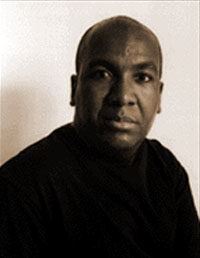In a webnote that he calls “Dark Clouds over Mordor,” Greg Rappleye has been wondering “how long Silliman will go without responding” to Reginald Shepherd’s repeated attempts to, as Greg characterizes it, call me out. But here in the Shire, the skies are blue. I think Shepherd’s doing exactly what he ought to be doing – he’s defining his poetics and defending them. That makes total sense to me. Do I agree with him? Probably not. But I don’t think he needs to write my poems any more than I think I need to write his. Each of us, I trust, will write the poetry we need.
Shepherd’s roster of the “experimental” poets he likes – Mei-mei Berssenbrugge, Kathleen Fraser, Ann Lauterbach, Michael Palmer, Bin Ramke, Donald Revell, Cole Swensen, and Rosmarie Waldrop – is a pretty good starter list of what I think of as “third way” or (to use Stephen Burt’s old phrase) “ellipticist” poets, writers trying to identify a path open as much to such mainstream poets as Jorie Graham or Jean Valentine as to the likes, say, of such post-avants as Erica Hunt or Harryette Mullen. I’d add Forrest Gander & C.D. Wright to Shepherd’s list as well.
But then I’ve never said that I disliked all
It’s the SoQ’s historic presumption that American literature is a subset of British (or, since the vaults are pretty much empty over amongst the conservatives on the
¹ How many poets of the several post-New American tendencies have ever had a photograph on the cover of Poets & Writers in its 20-year history? Unless you’re counting C.D. Wright, Andrei Codrescu or an occasional identarian poet who receives dispensation to write freely, the answer is still zero. Which is how a publication with a circulation of 60,000 trivializes itself.






